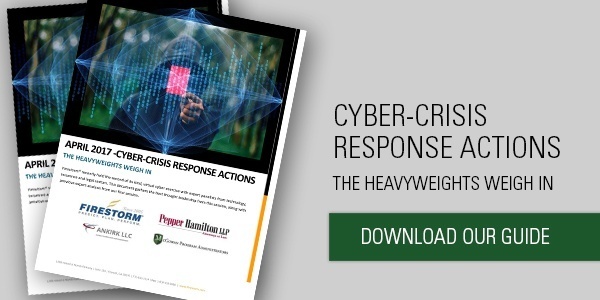Cyber attacks are a constant threat for all businesses and organizations, and the danger may come in many forms. These incidents involve an array of methods and motives that range from direct financial gain to just causing a disruption. Hackers are always looking for vulnerabilities to exploit, so it’s vital for leaders to be aware of the most common dangers affecting their industries and take protective measures.
Healthcare
“Personal health information has greater value than credit card numbers.”
Healthcare professionals and administrators are alert to the importance of protecting the personal information of patients and workers. Unfortunately, hackers are just as determined to gain access to that data, often breaching systems with malware that employees unwittingly download as an email attachment. According to the Center for Internet Security, personal health information has greater value than credit card numbers since a person’s medical history cannot be changed and, once compromised, it can be used to commit fraud.
Ransomware has also been used against healthcare systems, notably in the WannaCry attacks that affected networks around the world in May 2017. This type of malware, which locks users out of the system until they send payment is especially dangerous for medical providers, who rely upon technology to help save lives. When Britain’s National Health Service was hit by WannaCry, some hospitals and doctors were forced to turn away patients while workers had to improvise solutions for keeping records.
Education
Like healthcare networks, educational institutions are in possession of sensitive information that a data breach can turn into profit. In addition to databases containing the names, addresses and social security numbers of students and employees, all of which can be used to commit identity theft or other types of fraud, schools are also in possession of valuable intellectual property.
As University Business explained, faculty and students are commonly involved in developing technology and prescription drugs that with potential to become highly profitable. Further, the responsibilities of schools are complicated by the need balance the need for enhanced security with their mission to support the free exchange of knowledge and ideas.
Finance
Banks and other financial institutions build their reputation and long-term growth on reliably watching over both funds and data, so security is always on the minds of leadership. However, determined criminals are also constantly looking for a way through those protective measures. One method they have put into action is a distributed denial of service attack, overwhelming servers with enormous amounts of traffic and making it impossible for a business to function.
For instance, in January 2017, Lloyds Banking Group – the largest mortgage lender in Britain – experienced a DDoS attack that went on for two days and caused service outages for some customers. CNBC reported this may have been the first part of an attempt to obtain ransom money or a distraction from other illicit activity within the system.
Retail
Every day, shoppers entrust their personal data and payment information to stores and e-commerce sites. That makes retailers an appealing target for cyber attacks, which commonly go after credit card numbers and databases packed with useful tidbits about customers. Hackers locate vulnerabilities in systems, especially outdated ones that lack strong anti-fraud protections, and use malware to gather login credentials and as much personal information as possible.
Protecting your organization in the wake of a cyber attack
Organizations of all kinds must be wary of the possibility for fraud, data breaches, malware and other attacks on their computer networks. However, no matter what security precautions you have in place, a risk remains that hackers will find a way to beat them and your organization could find itself held liable because of data breaches or fraud. Cyber Liability Insurance from McGowan Program Administrators is customized to protect you from the risks specific to your industry.



